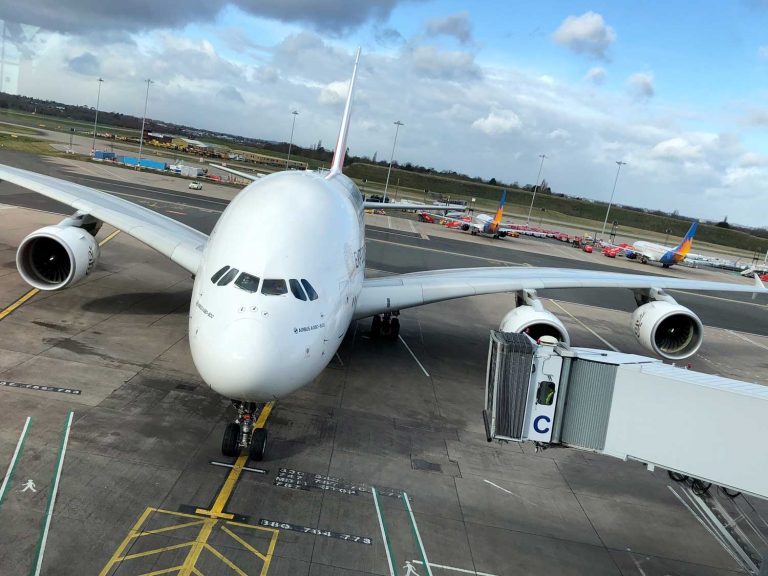
Date:
March: Air freight market update
Softening air freight rates and no post-Chinese New Year recovery means the usual strong March pick-up will not recover a depressed market and any uptick in rates due to demand being focused toward Turkey after the earthquake has been short lived.
Many key air freight trade lanes currently have weak demand, balanced or excessive capacity, with an aggressive spot market. The Asia-Europe trade lane has struggled with particularly slack demand as a result of the global consumer decline and the fallout from the war in Ukraine, which has now been occurring for over a year, affecting global trade as an impact.
Data from market analyst CLIVE found that global air cargo capacity has increased for the eleventh consecutive month in February, up 11% on the same period last year, rising above the pre-pandemic level for the first time in four years, but volumes were down 8% in terms of chargeable weight compared to pre-pandemic 2019.
CLIVE say they do see the fundamental changes that will help the current market conditions and while there is hope and expectation of volumes increasing in Q3 as companies restock, many shippers will look firstly to cheaper modes of transport and, even if there is a boost, it might still result in zero overall growth for air cargo.
The stricter Covid rules and lockdowns in China have slowed the return of passenger flights between Europe and Asia, with belly-hold cargo making up just 32% of market share, compared to 55% before the pandemic, but with China finally reopening its borders to tourists and issuing all visas from Wednesday 15th March 2023, the stats may swiftly improve.
Twelve months ago, Cathay Cargo was not flying into Europe at all, because of the Hong Kong government’s Covid-19 restrictions on airline crew.
This gradually increased from one flight a week into London, to one flight a day by the final quarter, with the carrier aiming to have four or five flights a day by the middle of the year.
Cathay Cargo is now operating wide-body services to Frankfurt, Amsterdam, London, Paris and Manchester so the opportunity to lift more cargo continues to grow.
Emirates, a key carrier partner, has not fully resumed its Airbus A380 pre-pandemic capacity levels and while it was operating 928 weekly flights in January, it was still 22.9% below January 2019 levels. But that’s changing slowly but surely.
Currently, Emirates operates 14 weekly flights to our Birmingham air freight hub and seven to Glasgow. It will resume its second daily service to London Stansted from the 1st May and will ramp up its operations to London with 11 daily flights. This includes six times daily to London Heathrow and three times daily to Gatwick.
The reopening of China and the growth of new manufacturers in Southeast Asia and India, together with increasing demand of Asian consumers are significant opportunities for air carriers.
Geopolitical tensions and the tightening of global economic conditions impacted consumer sentiment and resulted in the air cargo demand decline during the second half of 2022, which followed several years of steady air market demand growth.
The largest impact on rate development was driven by the fuel crisis that followed the start of the war in Ukraine, extended flying time, less payload and slower turnaround of the aircraft.
Market drivers are for rates to move towards pre-Covid levels, but operating costs for carriers have been significantly impacted by inflation, fuel, ground and general operating costs. We are not there yet and it is likely that air freight rates will remain robust and at higher levels for some time as the base cost base has increased.
It is widely anticipated that in the second half of the year demand will strengthen for time-critical movements and there will be a recovery in air cargo demand as inventory needs replenishing and the world hopefully begins to stabilise both financially and from a consumer perspective. We will continue to update on the ingredients and performance in the air freight market to ensure that you have the knowledge and market intel to make informed decisions throughout 2023.
Our air freight team continue to move time-sensitive cargoes globally, working to the tightest budgets and deadlines.
We work closely with our network and carrier partners to monitor market capacity and identify opportunities to use regional airports and particularly our Birmingham International Hub that will benefit our customers, with some of the most cost-effective services available in the market.
There are solutions for every critical shipment, please EMAIL Elliot Carlile for insights and advice.
